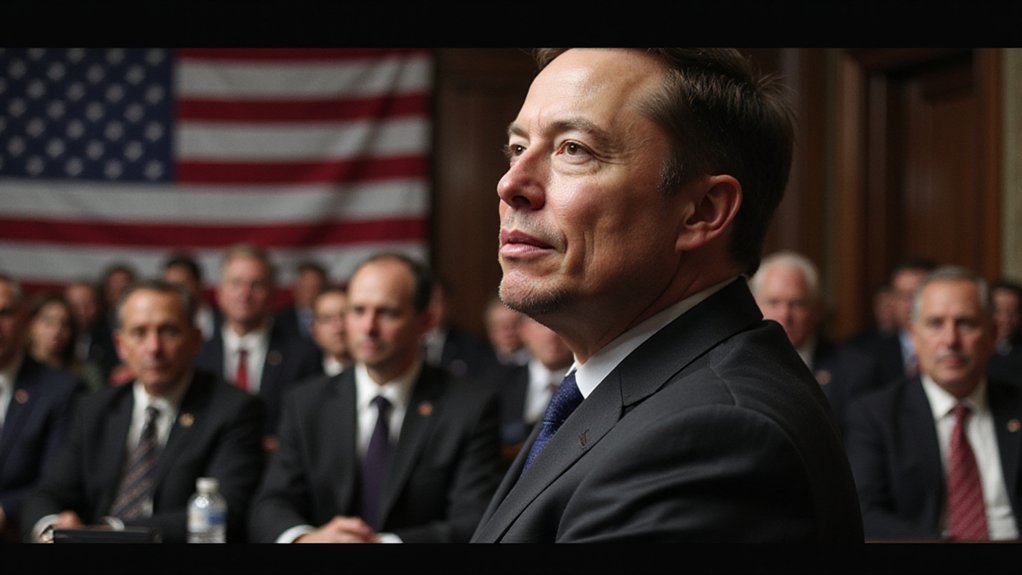While most billionaires content themselves with buying social media platforms or launching cars into space, Elon Musk has apparently decided that founding a political party represents the logical next step in his increasingly erratic dance with American governance.
The Tesla mogul’s proposed “America Party” emerges from his growing frustration with President Trump’s support for legislation that would phase out electric vehicle tax credits—a move that could devastate Tesla’s bottom line while simultaneously undermining Musk’s environmental virtue signaling.
The timing proves particularly fascinating given Musk’s $239 million donation spree through America PAC during the 2024 elections, all directed toward GOP causes.
Now, facing the uncomfortable reality that his political investments may have backfired spectacularly, Musk claims his new party would represent the “middle 80% of voters” allegedly ignored by both major parties.
One wonders whether this middle 80% includes billionaires whose business models depend on federal subsidies.
One might question whether Musk’s populist messaging extends to ending the corporate welfare that built his empire.
The logistical hurdles facing Musk’s political ambitions are considerable.
Federal Election Commission regulations would cap his party donations at less than $1 million—a pittance compared to the unlimited contributions his current super PAC structure allows.
Ballot access laws across fifty states present another nightmare scenario, with complex requirements that have historically relegated third parties to footnote status in American politics.
Treasury Secretary Scott Bessent and other political insiders have expressed skepticism about the venture, noting Musk’s diminished popularity and controversial leadership style.
Recent polling reveals a nearly even split in public perception of Musk himself, hardly the foundation for a revolutionary political movement.
His reputation damage limits appeal beyond certain libertarian-leaning and tech-focused demographics.
Meanwhile, Musk continues his curious political strategy of endorsing primary challengers against Trump-backed incumbents while supporting anti-Trump Republicans like Rep. Thomas Massie.
This approach suggests either sophisticated political maneuvering or profound confusion about coalition-building fundamentals.
Given Musk’s track record of impulsive decision-making, the smart money probably isn’t betting on the former explanation.
The America Party remains more aspiration than reality, though Musk’s capacity for turning grandiose pronouncements into actual enterprises shouldn’t be underestimated entirely. Much like crypto assets that operate on decentralized networks outside traditional banking authorities, Musk’s political venture seeks to circumvent established party structures through alternative organizational methods. The announcement coincided with Trump’s Independence Day signing of the One Big Beautiful Bill Act, creating an ironic backdrop for Musk’s political independence rhetoric. Trump has already escalated tensions by threatening to cut off subsidies to Musk’s companies amid their ongoing feud.






